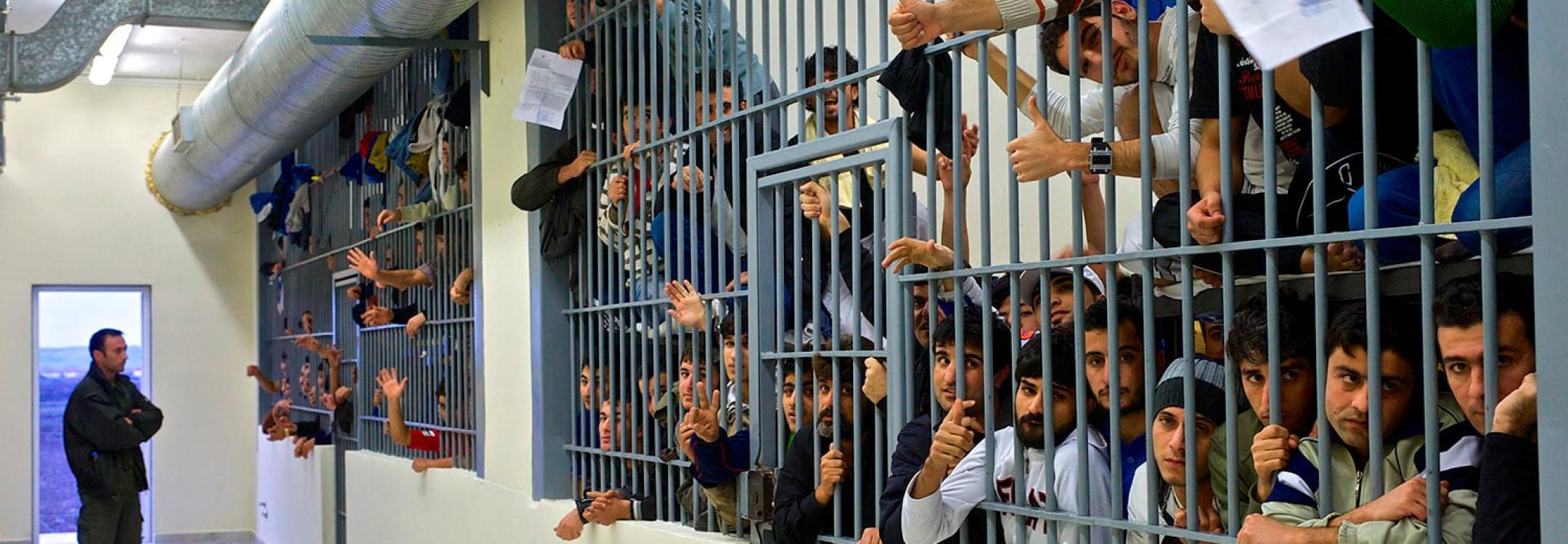
In a world where populations are increasingly in flux, we work with our partners to highlight the need to respect the human rights of migrants and asylum-seekers.
Around 134,000 migrants arrived in Europe in 2018. The detention of asylum-seekers and other migrants should be a measure of last resort, with priority given to less restrictive alternatives, especially for migrants and unaccompanied minors. However, in many countries, migrants are held in administrative detention, to verify their identity and to ensure that persons waiting to be deported do not go into hiding.
In cases where migrants are placed in detention their living conditions should be adapted to their situation. Migrants with particular needs, such as persons with physical or mental disabilities, are exposed to an especially high risk of abuse and ill-treatment and should receive particular attention and protection.
Different kinds of places are used for migrant detention, including holding centres and camps, airports, prisons and even police stations. These premises are often isolated and difficult to access. Migrants therefore find themselves in situations of particular vulnerability as they are held out of sight, sometimes in appalling conditions. There is also an important risk of ill-treatment, especially in the form of excessive use of force, when migrants are subject to forced return.
There are increased concerns for the safety and respect for the human rights of migrants among NGOs, human rights mechanisms and the United Nations High Commissioner for Refugees field staff. In response, the APT together with UNHCR and the International Detention Coalition published a practical manual on Monitoring Immigration Detention in June 2014.
What we do
We work with international, regional and national authorities with the mandate to visit facilities where migrants are held in detention so monitoring is effective. We have also produced monitoring tools and briefing papers that detail best practices in monitoring migrant detention centres.